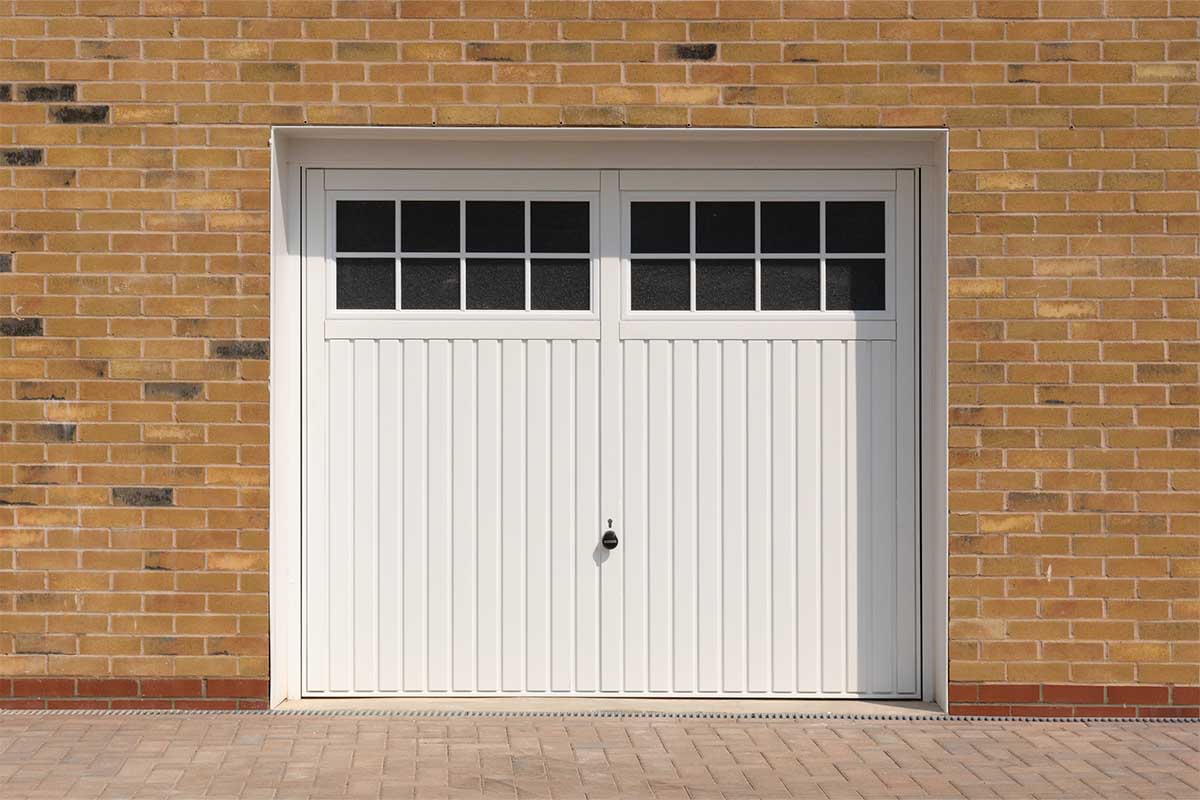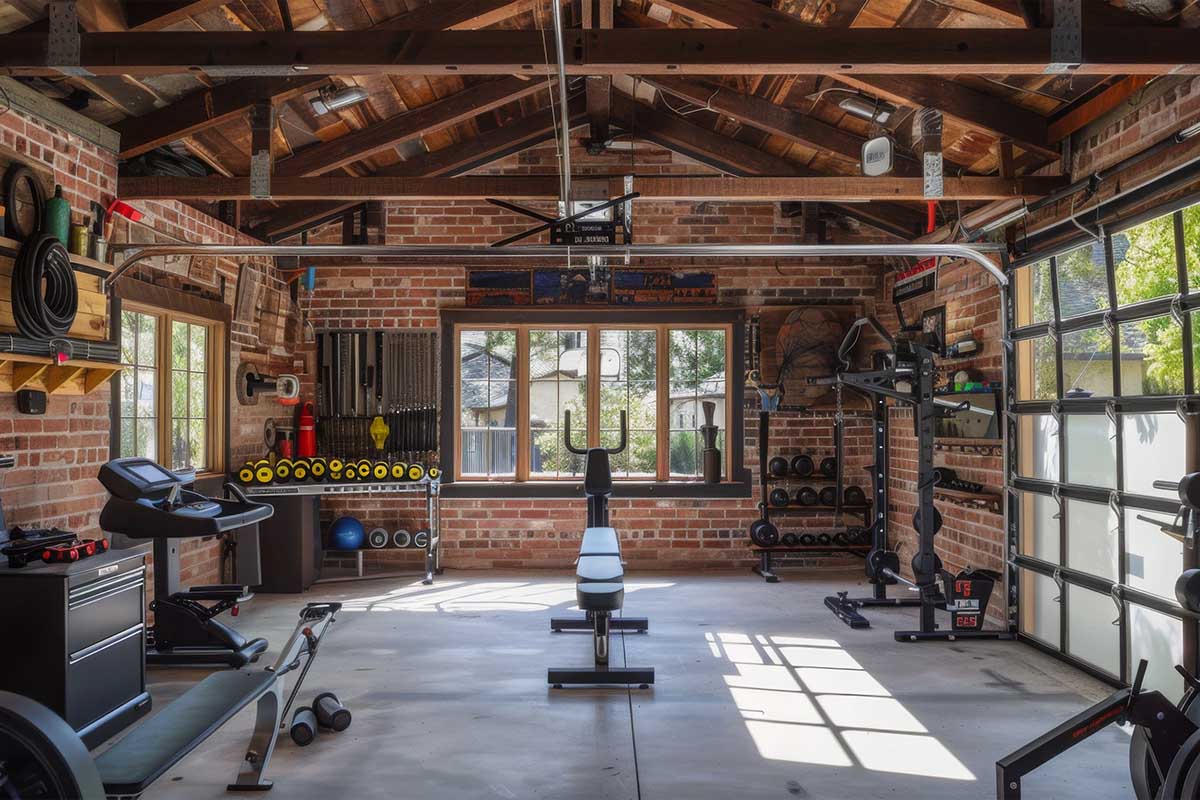Converting a garage into a functional living space is an increasingly popular way for many homeowners to maximise their property’s potential. Whether you’re transforming a single garage or a detached garage into a home office,...
Converting a garage into a functional living space is an increasingly popular way for many homeowners to maximise their property’s potential. Whether you’re transforming a single garage or a detached garage into a home office, bedroom, gym, or additional living space, a garage conversion can turn an underutilised area into a new room that adds value to your home.
However, one critical question arises: do you need to follow building regulations for a garage conversion? This article will explore the requirements, costs, and considerations for converting your garage, ensuring your garage conversion project complies with legal standards and enhances your property value.

What is a Garage Conversion?
A garage conversion involves transforming an existing garage into a habitable space. This could mean creating a home office, a bedroom, a gym, a playroom, or even a bathroom. Unlike a loft conversion or a house extension, a garage conversion typically repurposes an existing structure, making it a cost-effective way to add insulation, new walls, and windows to create additional living space without building from scratch.
Most garages, whether attached or detached, are designed for storage or parking a car, but they often become wasted space over time. By converting a garage, you can reclaim this underutilized area and tailor it to your needs. However, to ensure the new room is safe, structurally sound, and compliant with local regulations, understanding the legal requirements is essential.
Why Convert a Garage?
Converting your garage offers several benefits:
-
Maximise Space: Turn wasted space into a functional area, such as a home office or additional living space.
-
Increase Property Value: A well-executed garage conversion can significantly boost your property’s market value.
-
Cost-Effective: Compared to building an extension, a garage conversion is often less expensive and quicker to complete.
-
Versatility: The garage space can become a bedroom, gym, office, or even a small apartment, depending on your needs.
Do You Need Planning Permission for a Garage Conversion?
One of the first questions many homeowners ask is whether planning permission is required for a garage conversion. In many cases, converting a garage falls under permitted development rights, meaning you may not need formal planning permission from your local planning authority. However, there are exceptions, and it’s crucial to properly assess your project to avoid legal issues.
Permitted Development Rights
Under permitted development rights, you can often convert a garage without planning permission if:
-
The conversion is for internal use and doesn’t involve enlarging the building.
-
The garage is attached to the house, and the work doesn’t alter the external appearance significantly.
-
The property is not in a conservation area or listed building, where stricter rules apply.
However, if your garage conversion project involves significant changes, such as altering the garage door to a window or extending the structure, you may need to apply for planning permission. For a detached garage, additional rules may apply, especially if it’s located in a conservation area or near a listed building, where listed building consent may also be required.
When to Contact Your Local Planning Authority
To avoid complications, contact your local authority to confirm whether your garage conversion requires planning permission. For example, if your project involves:
-
Changing the external appearance, such as replacing the garage door with a new window or wall.
-
Converting a garage in a listed building or conservation area.
-
Altering the roof or adding significant structural changes.
Failure to obtain necessary permissions can result in fines or the need to reverse the conversion, so always check with your local planning authority before starting.
Building Regulations for Garage Conversions
Even if your garage conversion doesn’t require planning permission, it almost certainly needs to comply with building regulations. These regulations ensure the converted space is safe, energy-efficient, and structurally sound. Building regulations cover aspects such as insulation, electrical wiring, ventilation, fire safety, and structural integrity.
Key Building Regulations to Consider
When converting a garage, you’ll need to address several key areas to meet building regulations:
1. Structural Integrity
The existing garage structure must be structurally sound. Many garages have single-skin walls that may not meet the requirements for a habitable space. You may need to hire structural engineers to assess the garage ceiling, roof, and foundation. If the structure isn’t suitable, you might need to reinforce the walls or floor to ensure safety.
2. Insulation
Proper insulation is critical to make the garage space habitable. Most garages lack sufficient insulation, so you’ll need to add insulation to the walls, garage ceiling, and floor. Insulated plasterboard is commonly used for new walls to improve thermal efficiency. This ensures the new room meets energy efficiency standards and remains comfortable year-round.
3. Electrical Wiring
Any electrical wiring must comply with building regulations. This includes installing new lighting, power sockets, or heating systems. All electrical work should be carried out by a qualified electrician and certified to meet safety standards. For a DIY garage conversion, you’ll still need a professional to handle electrical installations to ensure compliance.
4. Fire Safety
Fire safety is a critical aspect of building regulations. You may need to install fire-resistant materials, such as insulated plasterboard, and ensure proper escape routes. For example, if the garage door is replaced with a window, ensure it provides adequate ventilation and meets fire safety requirements.
5. Ventilation
Adequate ventilation is essential to prevent dampness and ensure air quality. This may involve installing windows or mechanical ventilation systems, especially if the converted space will be used as a bedroom, bathroom, or home office.
6. Plumbing
If your garage conversion includes a bathroom or kitchen, plumbing must comply with building regulations. This includes proper drainage, water supply, and waste management. A professional plumber should handle these installations to ensure compliance.
Do You Need Building Control Approval?
To ensure your garage conversion project complies with building regulations, you’ll need to submit plans to your local authority’s building control team or hire an approved inspector. They will review the project and conduct inspections at key stages, such as when new walls, insulation, or electrical wiring are installed. Upon completion, you’ll receive a certificate confirming compliance, which is essential if you plan to sell your property later.

Garage Conversion Costs
The garage conversion cost varies depending on the scope of the project, the size of the garage, and the intended use of the space. On average, converting a garage costs between £10,000 and £30,000 in the UK, though a DIY garage conversion can reduce costs significantly if you have the skills to handle some of the work.
Factors Affecting Garage Conversion Costs
Several factors influence how much a garage conversion costs:
-
Size of the Garage: A single garage conversion is typically cheaper than a double or detached garage conversion.
-
Intended Use: A simple home office or storage space will cost less than a bedroom or bathroom, which requires plumbing and additional insulation.
-
Structural Changes: Reinforcing the roof, floor, or walls can add to the expense.
-
Finishes: High-end finishes, such as premium flooring or custom windows, will increase the cost.
-
Professional Fees: Hiring structural engineers, electricians, or plumbers adds to the overall garage conversion cost.
For example, a basic DIY garage conversion for a single garage might cost as little as £5,000–£10,000, while a fully fitted bedroom or bathroom could reach £20,000–£30,000 or more.
Saving on Costs
To minimise costs, consider:
-
Opting for a DIY garage conversion for non-specialist tasks like painting or basic stud walls.
-
Reusing existing features, such as the garage door, if it meets regulations.
-
Choosing cost-effective materials, such as standard insulated plasterboard instead of premium finishes.
Benefits of a Garage Conversion
A garage conversion offers numerous benefits beyond just adding space to your home:
-
Increased Property Value: A well-executed conversion can increase your property value by up to 20%, especially if it adds a bedroom or home office.
-
Versatile Living Space: The new room can serve multiple purposes, from a gym to a guest bedroom or even a small apartment.
-
Avoid Moving Costs: Instead of moving to a larger house, a garage conversion allows you to create the space you need without the expense of relocating.
-
Sustainable Choice: Repurposing an existing structure is more environmentally friendly than building a new extension.
Challenges of a Garage Conversion
While garage conversions are generally straightforward, there are some challenges to consider:
-
Loss of Parking: Converting your garage means sacrificing parking or storage space. If you rely on your garage to park your car, consider whether you have alternative parking options.
-
Structural Issues: Some garages may not be structurally sound, requiring costly repairs to the roof, floor, or walls.
-
Regulatory Compliance: Navigating building regulations and planning permission can be complex, especially for detached garages or properties in conservation areas.
-
Unexpected Costs: Hidden issues, such as poor insulation or faulty electrical wiring, can increase the garage conversion cost.
Tips for a Successful Garage Conversion
To ensure your garage conversion project is a success:
-
Plan Thoroughly: Work with structural engineers and your local authority to properly assess the structure and ensure compliance with building regulations.
-
Hire Professionals: For complex tasks like electrical wiring, plumbing, or structural work, hire qualified professionals to avoid costly mistakes.
-
Consider Future Needs: Think about how the new room will be used in the long term. For example, a home office can easily be converted into a bedroom later.
-
Budget Wisely: Account for unexpected expenses and set a realistic budget for the project.
DIY vs Professional Garage Conversion
A DIY garage conversion can save money, but it’s not suitable for every aspect of the project. Simple tasks, such as painting, installing stud walls, or laying flooring, can often be done by homeowners with the right skills. However, complex tasks like electrical wiring, plumbing, or structural modifications require professional expertise to meet building regulations.
If you’re considering a DIY garage conversion, ensure you:
-
Understand the building regulations and obtain necessary approvals.
-
Have the skills to complete tasks like installing insulated plasterboard or reinforcing walls.
-
Hire professionals for specialised work to avoid safety issues or non-compliance.

Conclusion
A garage conversion is an excellent way to transform wasted space into a functional living space, whether it’s a home office, bedroom, gym, or bathroom. However, to ensure your garage conversion project is safe, legal, and adds value to your property, you must comply with building regulations and, in some cases, obtain planning permission or listed building consent. By working with your local authority, hiring structural engineers when needed, and budgeting carefully, you can convert your garage into a new room that enhances your home’s functionality and property value.
Before starting, properly assess your garage space, consider the garage conversion cost, and decide whether a DIY garage conversion or professional help is the best approach. With careful planning, your garage conversion can turn an underutilised area into a valuable addition to your house.

The Conversion Guy - A Trusted Garage Conversion Specialist in Derbyshire & Staffordshire
Are you ready to take the plunge and transform your garage into a warm, welcoming living space? Well, look no further! The Conversion Guy is committed to providing you with a garage conversion experience that is unparalleled.
With over 40 years of experience in garage conversions, we are looking forward to helping you turn your garage into a functional and beautiful space! We love talking conversions, so be sure to get in touch today or book a free consultation and start your journey towards a more spacious, versatile home.
From the Learning Centre
Explore our resources and learn about pricing, bathroom refits, kitchen kitchen renovations, loft conversions and many other home improvements in our Learning Centre






